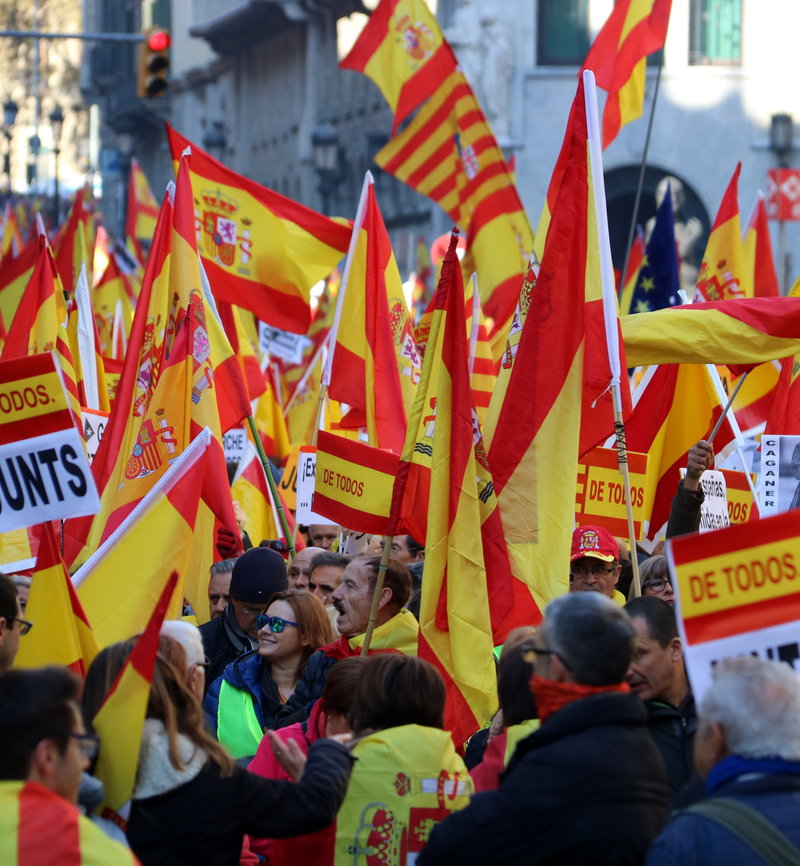ON DIVIDE AND DIVIDING
One of the criticisms of the Catalan independence movement is the supposed divide it incites, by grouping society into those for or against it. Granted, separations are no minor thing, even more so within OECD countries. However, truly confident democracies should inherently open all topics for discussion and debate, including those on secession. Only authoritarian regimes, dictatorships or, well, immature “democracies”, deny this “right”. In fact, during the days of Basque terrorism, the then Spanish president, Aznar, used the motto “sin armas de puede hablar de todo” (without weapons all topics are open for discussion).
More than 10 years after the Catalan independence movement became mainstream, it is fair to state that the divide can be labelled as wishful thinking. As a matter of example, the myriad of mass rallies calling for independence on Catalonia’s National day on September 11 have shown millions, families and individuals of all ages and origins, gathered peacefully, leaving the pavements as clean as prior to the events. On the contrary, pro unionist rallies, far less crowded, have exposed the dark side of Spanish nationalism, including the profusion of fascist emblems. Catalans are not angels, yet, their democratic proposal (like it or dislike it) contrast with Madrid’s (to give it a name), which unashamedly ignores that democratic standards should be adopted by all instances of society.
Accordingly, the divide argument, rather than a valid one, should be taken as the excuse to unilaterally set a taboo on uncomfortable topics; as regarded from the prism of Madrid’s political system, including, yes, many foreign reporters mimicking the capital’s political microcosms. Take the insistence from Spanish nationalism to place “Valencià” or “Balear” as languages on their own, thus separating them from Catalan; this, notwithstanding philologists regularly illustrating how they all are one and the same. By this same token, the Castilian varieties spoken in Extremadura, Andalucía or Murcia should not be considered Spanish, but rather “Extremeño”, “Andaluz” or, better, “Sevillano” “Gaditano”, “Cordobés”, and so on. In the Canary Islands, too, or in most of Spanish speaking-America, where differences with standard Spanish from Castile are stark. Yet, nobody would call them by any other name, if only lightheartedly.
An old strategy
Divide and rule is a strategy that is as old as military occupation itself; therefore, it should be named as such, particularly when used against a minority. By way of illustration, with due media fanfare, the Partido Popular ignited a campaign against the Catalan “Estatut” (constitution) of 2006, approved by its Parliament and by a huge majority in an ad-hoc referendum. Yet, no one from mainstream Spanish politics pointed them out by trying to divide Spanish society, in this case to bully the Catalan minority.
For many, the Catalan case offered Madrid the chance to overcome its murky past, for instance, by reforming its most retrograde institutions. Sadly enough, it has instead given its army, diplomacy, police forces and judiciary, a renewed sense of self, of purpose. Indeed, this parallels the much-criticised endeavours of some in the new Eastern European partners. See how just recently the European Commission admonished Poland in unusually harsh terms, saying that “the EU is a community of values and laws. Our utmost priority is to ensure that the rights of Polish citizens are protected…” Well, the president’s statement could very well be applied to the case of Spain, word for word, marking it out as the anomaly, in this case, of Western Europe.

